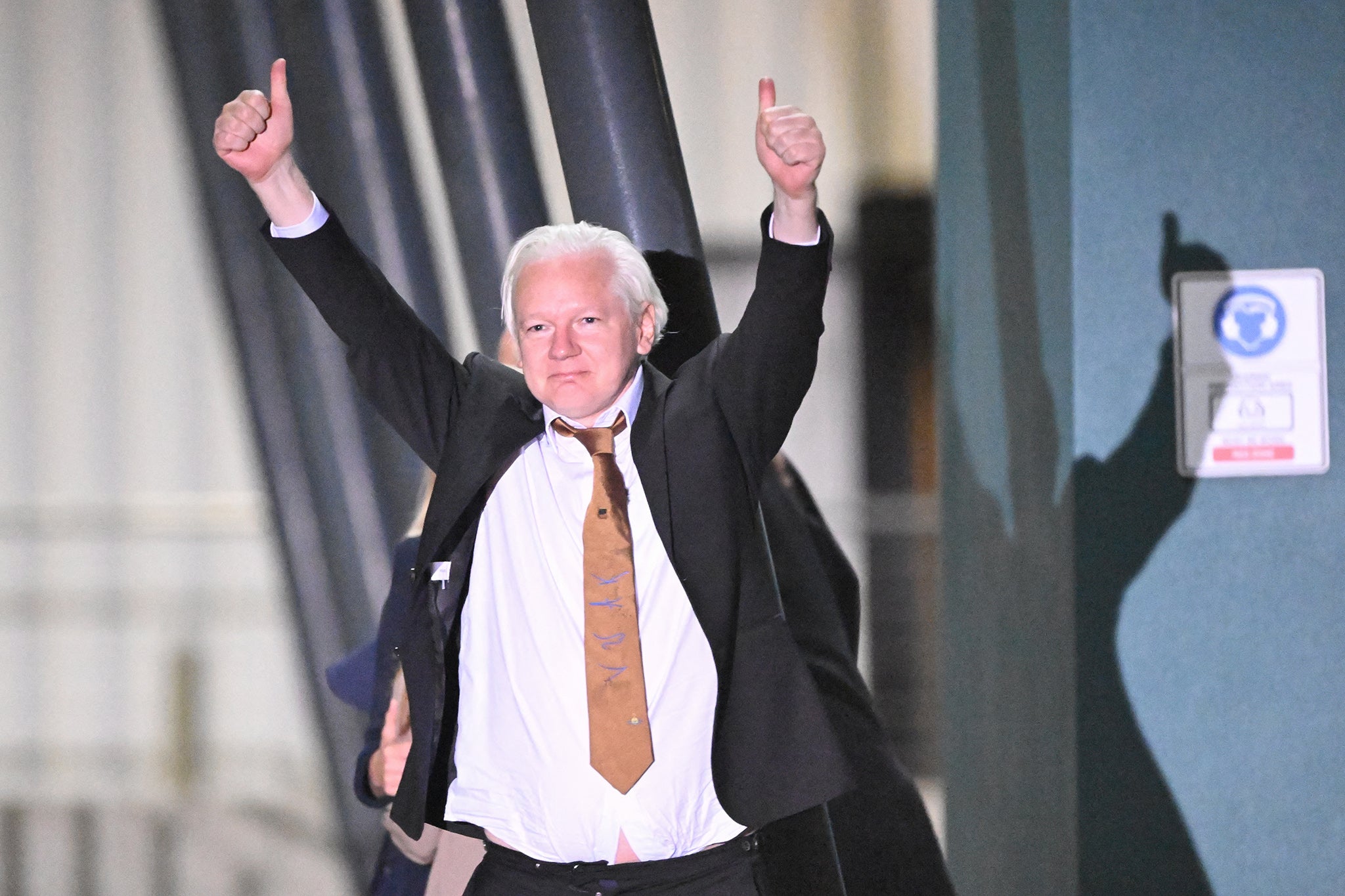Julian Assange ‘is no martyr’, Australian opposition leader says as Wikileaks founder returns home
Simon Birmingham claims journalist ‘was never a political prisoner denied access to justice’ and warns his release could strain ties with US
Conservative Australian lawmakers have raised concerns about portraying WikiLeaks founder Julian Assange as a hero after he returned home following years of incarceration in the UK.
Mr Assange landed in Australia to an ecstatic welcome on Wednesday after pleading guilty to a single charge of violating the US Espionage Act.
The journalist reached a plea bargain with American prosecutors after spending more than five years in a British jail without trial as he fought a legal battle to avoid extradition to the US.
He had been holed up in the Ecuadorian embassy in London for seven years before being forcibly removed and arrested by the British police in April 2019.
After emerging from his plane to loud cheers, Mr Assange waved to a crowd that had gathered in Canberra before hugging and kissing his wife Stella. Supporters were heard shouting “thank you Julian” and “we love you Julian” as he stepped off the plane.
The Australian government maintained a cautious stance in support of Mr Assange even as senior political leaders like prime minister Anthony Albanese lobbied for his release.
Mr Assange’s supporters and free speech advocates maintain that he has been victimised for exposing wrongdoing by American politicians and intelligence agencies and potential war crimes by its troops in Afghanistan and Iraq.
WikiLeaks published reams of classified military and diplomatic documents incriminating American political and military leadership in 2010.

But Simon Birmingham, opposition leader in the Australian senate, said Mr Assange was “no martyr and was never a political prisoner denied access to justice”.
He cautioned Mr Albanese against meeting Mr Assange and said the journalist’s release could strain the country’s ties with the US.
However, foreign minister Penny Wong told ABC Radio that Mr Assange’s release posed no threat to ties with America.
James Paterson, the opposition’s home affairs spokesperson, told Sky News that Mr Assange had evaded lawful extradition requests by hiding in the Ecuadorian embassy and used his legal rights in Britain to challenge it over many years.
"He is now someone who’s pled guilty to very serious national security offences, which are not just offences against the United States. They’re offences against the Five Eyes intelligence gathering alliance, including Australia," he said.
Mr Albanese called Mr Assange to welcome him home. He said they "had a very warm discussion".

Mr Assange’s incarceration has been a rare point of tension in Australia’s bilateral relations with the US.
Independent lawmaker Andrew Wilkie, co-chair of a parliamentary committee that advocated for his release, said the thorn had now been pulled out.
"For some time now, the incarceration of Julian Assange was a thorn in the side of that relationship, it was just niggling away on the margins," he said.
"That has now been fixed, so I now see reason to be very optimistic about the bilateral relationship”.
The US State Department on Wednesday claimed its involvement in the resolution of Mr Assange‘s case was limited and reiterated its position, without offering any evidence, that his actions had put lives at risk even though the American judge who accepted his guilty plea said there had been no personal victim.
The White House was not in any way involved in the case, national security spokesman John Kirby said, adding it was a Department of Justice matter.
Additional reporting by agencies
Join our commenting forum
Join thought-provoking conversations, follow other Independent readers and see their replies
Comments